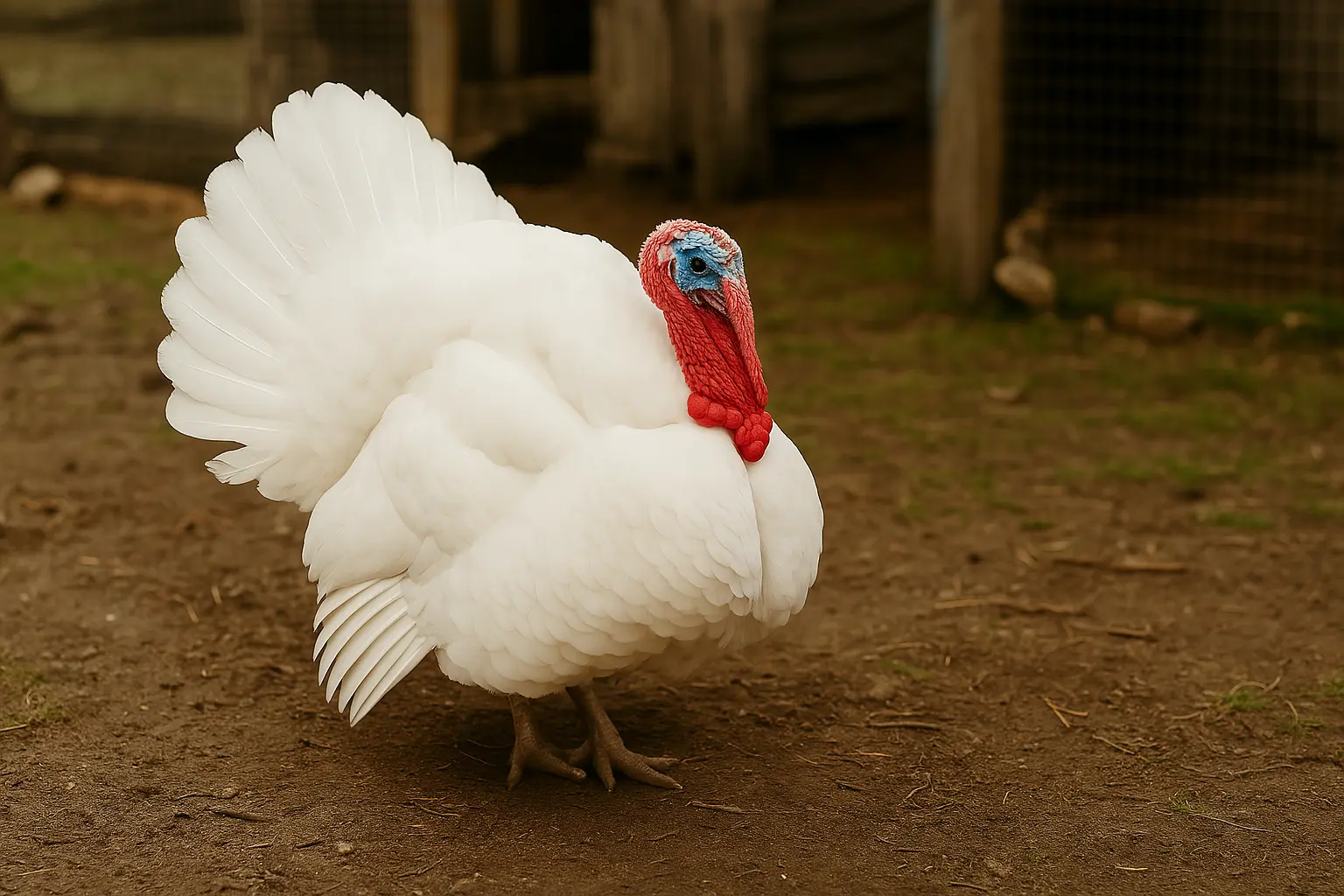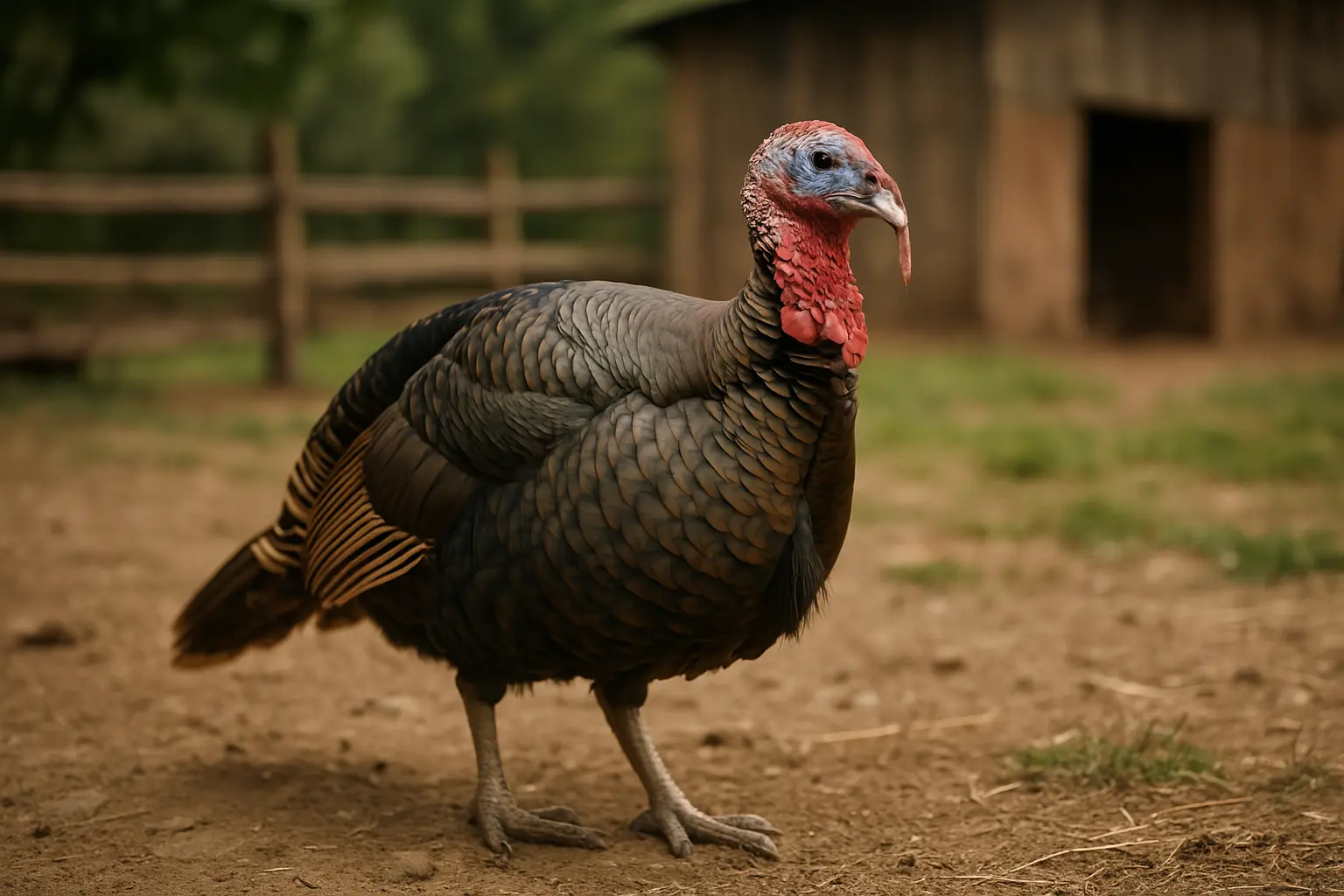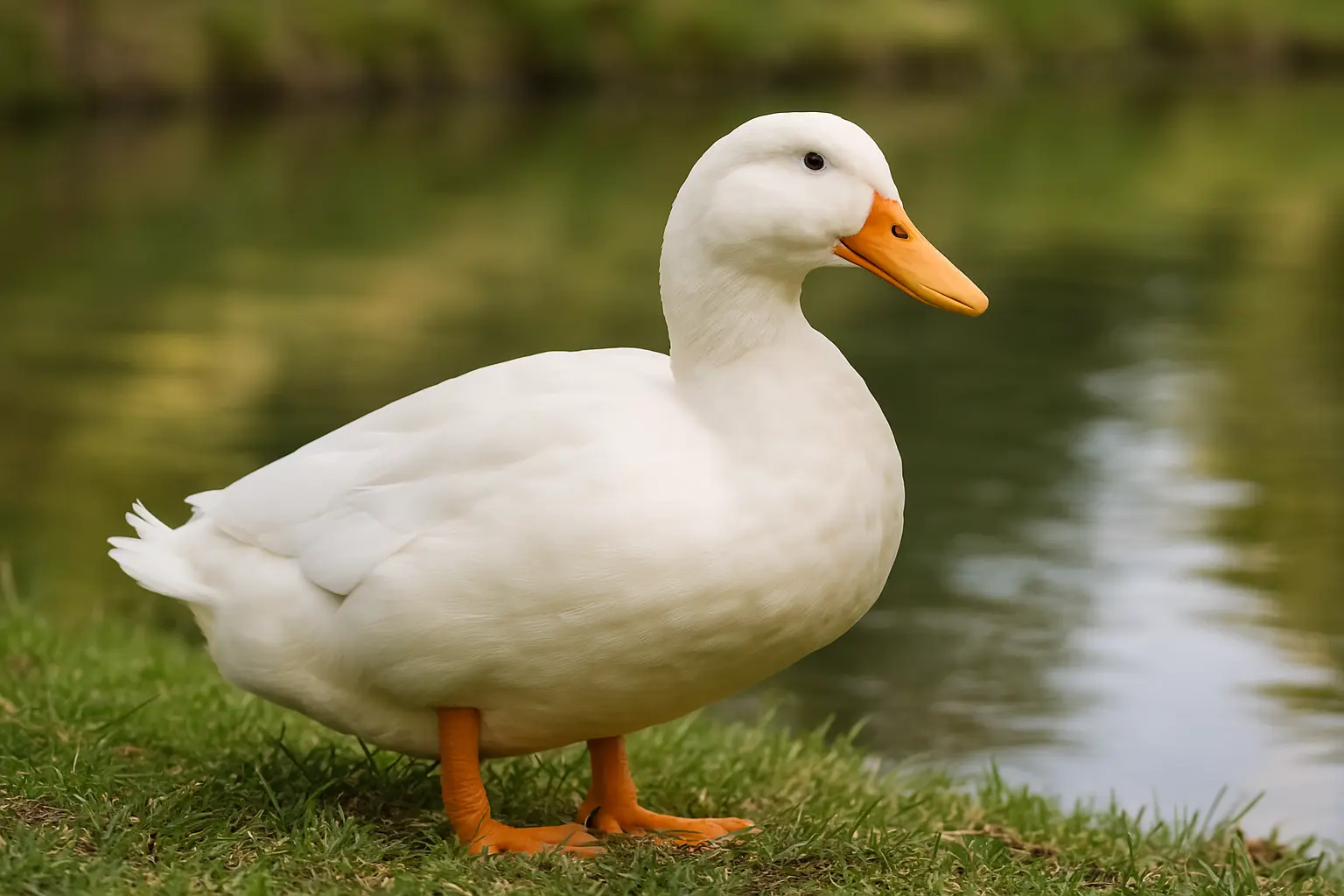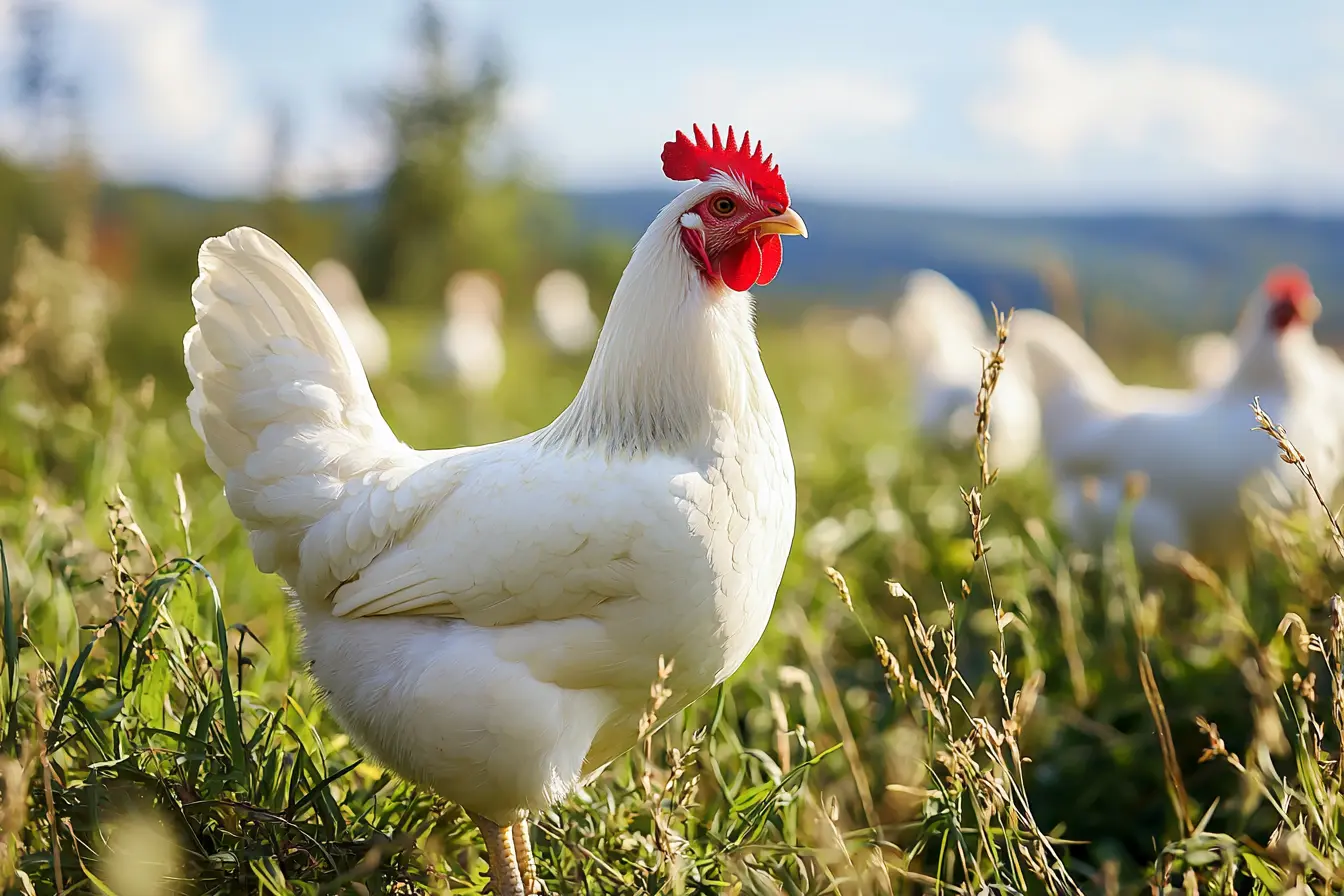
A Complete Guide to Keeping White Holland Turkeys
White Holland turkeys are an excellent choice for poultry keepers in the UK looking for a calm, hardy, and productive breed. Known for their striking white plumage, friendly disposition, and high-quality meat, White Holland turkeys are a great addition to smallholdings, farms, or even spacious back gardens.
This guide provides potential owners with everything they need to know about keeping White Holland turkeys, including housing, feeding, health, and general care.
Introduction to White Holland Turkeys
Despite their name, White Holland turkeys originated in the United States and were developed from European breeds. They are a heritage breed that was once widely raised for their premium meat before being overshadowed by commercial breeds. Today, they are valued for their excellent temperament, efficient growth, and traditional flavour.
Key Characteristics
- Lifespan: 5-10 years with proper care
- Size: Large (toms weigh 10-15 kg; hens 6-8 kg)
- Temperament: Docile, friendly, and easy to manage
- Appearance: Pure white feathers, pinkish-white skin, and a broad breast
- Meat Quality: Lean, tender, and flavourful
- Hardiness: Well-suited to the UK's variable climate
Why Choose White Holland Turkeys?
White Holland turkeys offer many benefits to poultry keepers:
- High-Quality Meat: They produce tender, flavourful meat with a great meat-to-bone ratio.
- Friendly Disposition: Their calm and social nature makes them easy to handle and suitable for beginners.
- Good Egg Production: While not prolific layers, hens can provide a small number of nutritious eggs.
- Cold Hardy: They are well-adapted to cooler climates, making them suitable for UK weather.
- Heritage Breed: Raising White Hollands supports the conservation of traditional poultry breeds.
- Low Maintenance: They are relatively easy to care for compared to other livestock.
Housing Requirements for White Holland Turkeys
Proper housing is essential to ensure your turkeys remain healthy and comfortable in the UK's changing climate.
Shelter Requirements
- Size: Provide at least 1.5-2 square metres per bird inside the shelter.
- Bedding: Use straw, wood shavings, or sand for comfort and insulation.
- Ventilation: Ensure proper airflow to prevent respiratory issues.
- Protection: Secure the shelter against predators such as foxes and rodents.
- Perches: Provide low, sturdy roosts, as turkeys enjoy perching to sleep.
Outdoor Space
White Holland turkeys thrive when given plenty of space to roam and forage.
- Minimum Space: Allow at least 10 square metres per turkey for free-ranging.
- Fencing: Install fencing at least 1.5 metres high to prevent them from wandering and protect them from predators.
- Sheltered Areas: Provide shaded spots and windbreaks to protect against harsh weather conditions.
Tip: Rotating their grazing areas can help prevent overgrazing and reduce disease risk.
Feeding Your White Holland Turkeys
A balanced diet is crucial to maintaining the health and growth of your turkeys.
Essential Nutrition
- Starter Feed (0-8 weeks): A high-protein (26-28%) turkey starter crumble to support early growth.
- Grower Feed (8-16 weeks): Lower protein feed (18-20%) to promote steady growth.
- Finisher Feed (16+ weeks): For birds raised for meat, feed designed to build muscle mass without excess fat.
- Grit: Essential for digestion to help break down food.
- Fresh Greens and Scraps: Leafy greens, vegetables, and fruits provide enrichment and vitamins.
- Clean Water: Always provide fresh, clean water to support digestion and hydration.
Feeding Tip: Avoid feeding them chicken feed, as turkeys require higher protein content.
Health and Common Concerns
White Holland turkeys are generally robust, but regular health checks and preventative care are essential.
Common Health Issues
- Blackhead Disease: A parasitic infection that turkeys can contract from chickens; avoid co-housing them.
- Respiratory Infections: Caused by damp or poorly ventilated conditions; ensure dry, airy housing.
- Leg Weakness: Due to their large size, turkeys can develop joint and leg issues if not given adequate exercise.
- Parasites: Regularly check for mites and lice and treat if necessary.
- Coccidiosis: A common digestive issue; consider medicated feed if an outbreak occurs.
Preventative Care
- Maintain clean, dry bedding.
- Provide a well-balanced diet rich in essential nutrients.
- Conduct regular visual checks for signs of illness.
White Holland Turkey Behaviour and Handling
White Holland turkeys have a calm and friendly temperament, making them easy to manage.
- They are social birds that enjoy the company of humans and other poultry.
- They are less flighty compared to other turkey breeds, making them easier to contain.
- Toms (males) can become territorial during the breeding season, but they generally remain docile.
- Turkeys enjoy foraging and benefit from access to pasture where they can peck at grass and insects.
Handling Tip: Handle your turkeys gently from a young age to build trust and minimise stress.
Egg Production and Collection
While primarily raised for meat, White Holland hens can also produce a modest number of eggs.
Egg-Laying Habits:
- Turkeys typically start laying at around 7-9 months of age.
- Expect around 2-3 eggs per week, mostly during spring and summer.
- Turkey eggs are larger than chicken eggs and have a rich flavour.
- Hens may become broody and attempt to hatch their eggs.
Egg Collection Tip: Collect eggs daily to prevent hens from sitting and ensure freshness.
Winter Care for White Holland Turkeys
White Holland turkeys are well-adapted to the UK's colder climate, but they require additional care in winter.
- Shelter Insulation: Add extra bedding to help retain warmth.
- Preventing Frozen Water: Use heated water dispensers or replace water frequently.
- Increased Feed: Offer additional calories to help maintain body heat.
- Dry Ground: Provide elevated areas to prevent turkeys from standing on wet or frozen ground.
Winter Tip: Regularly check for signs of frostbite on their wattles and feet during extremely cold weather.
Breeding and Raising Poults
Breeding White Holland turkeys can be a rewarding experience with proper planning.
Breeding Tips:
- Toms can become aggressive during the breeding season, so provide ample space.
- Offer quiet, sheltered nesting areas for hens to lay eggs.
- The incubation period for turkey eggs is 28 days, and poults require a warm brooder setup.
- Poults need a high-protein diet to support their rapid growth.
Growth Rate: White Holland poults grow relatively quickly and reach full size within 24-28 weeks.
Legal Considerations in the UK
Before keeping White Holland turkeys, it’s important to be aware of relevant UK regulations.
- DEFRA Regulations: Follow biosecurity measures to prevent the spread of avian diseases.
- Local Council Rules: Check for any restrictions regarding keeping turkeys in your area.
- Neighbour Considerations: Turkeys can be noisy, so it's best to discuss your plans with neighbours.
Conclusion
White Holland turkeys are an excellent choice for poultry keepers looking for a productive, friendly, and easy-to-care-for breed. Whether you’re raising them for meat, eggs, or simply as an addition to your flock, they are sure to provide satisfaction and enjoyment.
With proper housing, nutrition, and care, your White Holland turkeys will thrive and bring years of utility and companionship.
Contents
- Introduction to White Holland Turkeys
- Why Choose White Holland Turkeys?
- Housing Requirements for White Holland Turkeys
- Feeding Your White Holland Turkeys
- Health and Common Concerns
- White Holland Turkey Behaviour and Handling
- Egg Production and Collection
- Winter Care for White Holland Turkeys
- Breeding and Raising Poults
- Legal Considerations in the UK
- Conclusion
Tags
Vets near you
Speciality vets
- Aquatics vet specialists
- Birds vet specialists
- Camelids vet specialists
- Cats vet specialists
- Cattle vet specialists
- Deer vet specialists
- Dogs vet specialists
- Equines vet specialists
- Exotic vet specialists
- Goats vet specialists
- Pigs vet specialists
- Poultry vet specialists
- Sheep vet specialists
- Small Mammals vet specialists
- Wild vet specialists
Vet facilities
- Accessible by public transport
- Blood testing
- Car park nearby
- Client car park
- Dentistry
- Diagnostic imaging
- Disabled public access
- Flea and worm treatments
- Microchipping
- Mobile services
- Neutering
- Open at weekends
- Out-of-hours service
- Referral interests
- Referrals only
- Street parking outside
- Toilets available
- Vaccinations



